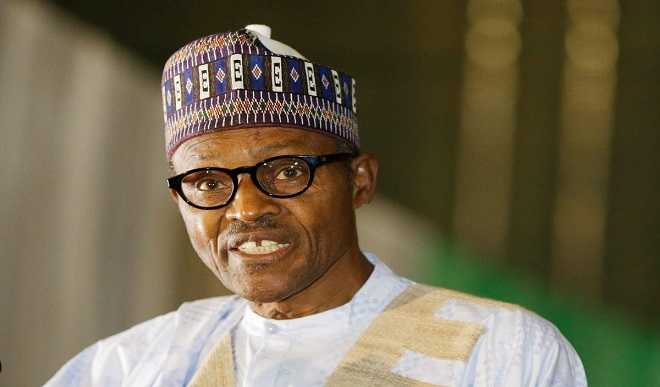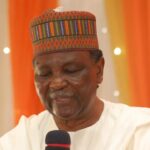
The nationwide address by President Muhammadu Buhari last Monday on his return from a London hospital provided valuable insights into the concerns he must have been nursing throughout his 103 days on his sickbed. Of note was his concern with national unity, ostensibly informed by the sordid developments which were flowing in torrents, and actually placed the country’s unity on the chopping board. At least two of these developments with topical significance remain the May 27th, 2017 ‘sit-at-home’ order with which the IPOB locked down several towns in the South East as well as other parts of the country that were vulnerable to such an outrage. Following on this was the quit order given by a coalition of Northern youth groups to all Ibos in the North to leave the zone on or before October 1th, 2017, in their own interest.
It is therefore understandable that on his first day at work as President, any threat to national unity whether veiled or manifest will make him restless and rearing to go at such. Hence the highly profiled meeting between the President and security chiefs remains significant and of utility as it sends out a message of assurance to Nigerians that all is in order. It is hoped that such a power show from the Presidential Villa will reinforce the earlier assurances by the Police and other security agencies in assuaging the fears of a raw deal in many quarters around the country.
Yet the fact remains incontestable that to keep Nigeria’s unity intact takes more than sheer force of arms as can be mustered by the country’s military and police establishment. Ordinarily, as one of the most formidable military establishments not only in Africa but in the entire developing world, the Nigeria military has what it takes to protect the territorial integrity of the country several times over. Even the ongoing Boko Haram insurgency – intractable as it may seem – can hardly vitiate the capabilities of the country’s forces. Given the asymmetric nature of the warfare in which the Nigerian military is presently engaged in with the BH insurgents, it is indisputable that the country’s armed forces have acquitted themselves, if the resources at their disposal are considered. By any standards for ranking battlefield successes, the President and the gallant Nigerian military deserve kudos for the level of containment of the Boko Haram elements as has been achieved.
Yet placing the burden of maintaining the unity of the country solely or even predominantly on the military constitutes a tall, untenable order for the men and officers concerned. This is due to the simple reason that unity of any country is distinct from its territorial boundaries which can be physically identified and policed. Unity itself remains an abstract concept – a state of mind of a group of individuals or groups who agree to co-habit as one. It therefore requires each of the uniting entities conceding to accept a complement of common values which will further the integrity of the union. Unity therefore exists and is expressible only in the attitude of the uniting people.
In the light of the foregoing, the pursuit of unity expectedly falls within the terrain of consensus rather than coercion, which makes it a responsibility of the political class. Hence the scenario of the President returning to office and falling back on the military to keep his country’s unity intact constitutes a major indictment of the political class. Had they done the needful, Buhari would not be holding security contingency meetings but back slapping with the politicians.
It is often easily forgotten that the military in all their patriotism and willingness to sacrifice even ultimately, hardly create crises and wars. Rather they are always drawn in when the politicians foul the waters and need sacrificial lambs to clean the mess. Hence unless the political class to which the President now belongs demonstrate the willingness to allow the country’s unity to stand, there is hardly much the military establishment will achieve except moving fighting troops from one avoidable theatre of in-house war to another, and piling up bodies of fellow Nigerians, who would be caught up in the crises, for burial. And this is exactly what the military needs to appreciate as they proceed to comply with the presidential directive to safeguard the country’s unity.
Also of concern is the underlying presumption that the unity of the country is inviolable. Given the abstract nature of unity whereby it dwells in the minds of people, questions over the validity of a presumption of inviolability of Nigeria’s unity rage in the light of prevailing political and economic state of affairs in the country. Under consideration in this regard is the matrix of depressed social conditions of living in the country which have in turn elicited the odious regime of vicious extreme conducts such as hate speech and insurgency, which constitute veritable threats to the country’s unity. As is indisputable, at the root of all the extreme tendencies in the country, lies the syndrome of extreme poverty and a gnawing sense of privation.
From the war ravaged expanses of the North East with its signature Boko Haram infestation to the Niger Delta where the most iconic image is that of oil spills and environmental degradation, to the South East region where gully erosion and pock marked highways are the signs of the times, a deep seated sense of privation and marginalisation pervades them. Even the resort to armed struggle against the Nigerian state has its origins in the foregoing scenario.
Several scholars like the late Professor Claude Ake have elaborated on the hollowness of any development agenda in the bitter narrative of management of political power by the post-colonial indigenous African political leaders. Aping the totalitarian style of their preceding colonial officers, succeeding generations of African presidents, governors and other potentates, have as a class routinely appropriate power to themselves not for the development of their communities but for self aggrandisement, to the exclusion of the citizenry.
In the context of the foregoing the only political development that will guarantee Nigeria’s unity is for the masses to control political power and the processes of governance. If after 18 years of return of civil rule in the country, the political landscape is still infested with elected governors and other potentates who routinely play god in the spirit of degeneracy, then the main challenge to the nation’s unity is simply bad governance practices and resultant stagnation in all sectors of the society.
Reversing such a syndrome is a challenge that is best disposed to consensus building from the grassroots and not jack-boot politics.

 Join Daily Trust WhatsApp Community For Quick Access To News and Happenings Around You.
Join Daily Trust WhatsApp Community For Quick Access To News and Happenings Around You.


